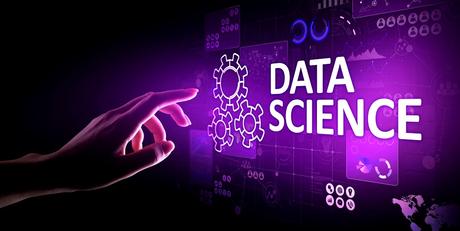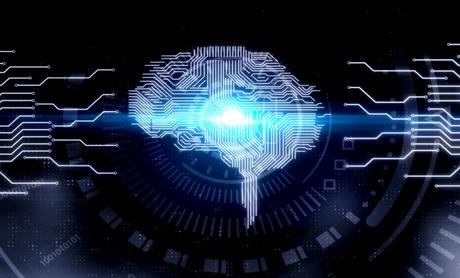Discover How to Learn the Best Computer Science Skills in 2023.. Expert tips and resources for your success!
In today’s rapidly evolving world, computer science skills are in high demand. Whether you’re a seasoned programmer looking to stay up-to-date or a newbie eager to dive into the world of coding, 2023 offers incredible opportunities to learn and master the best computer science skills. In this comprehensive guide, we’ll explore the most effective ways to acquire and sharpen your computer science expertise.
How to Learn the Best Computer Science Skills in 2023

Setting the Stage: Why Computer Science Skills Matter
Before we delve into the how-to aspect, let’s briefly understand why computer science skills are vital in 2023 and beyond.
Computer science underpins almost every industry, from healthcare to finance to entertainment. A growing demand for qualified computer scientists will result from the advancement of technology, and programmers remain insatiable. Here are some compelling reasons why you should invest in learning computer science skills:
Let’s delve into a more detailed explanation of why computer science skills matter in today’s world, setting the stage for the rest of the article.
In the digital age of the 21st century, computer science skills have transcended from being merely advantageous to being absolutely indispensable. These skills form the backbone of our rapidly evolving technological landscape, and understanding their significance is critical for anyone looking to thrive in the modern workforce or make a meaningful impact in various aspects of life.
Read more: How to Learn 15 in-Demand Freelancing Skills
1. High Demand for Tech Professionals
One of the most compelling reasons for the importance of computer science skills lies in the consistently high demand for tech professionals. The technology industry is expanding at a never-before-seen rate, and traditional tech firms are not the only ones benefiting. Almost every sector, including healthcare, banking, entertainment, and agriculture, relies on technology solutions to stay competitive and relevant. As a result, the demand for individuals with computer science expertise is soaring. These professionals design and develop software, create innovative applications, and maintain the digital infrastructure that powers our world.
2. Innovation and Problem-Solving
Computer science is synonymous with innovation and problem-solving. It equips individuals with the tools and mindset necessary to tackle complex challenges and develop creative solutions. Whether it’s designing cutting-edge apps, optimizing supply chain operations, or finding breakthroughs in healthcare research, computer science skills are at the heart of virtually every transformative innovation. Those who possess these skills are the architects of the future, driving progress in various fields.
3. Versatility
The beauty of computer science skills is their versatility. Unlike some specialized skills that are limited to specific industries, computer science transcends boundaries. Once you acquire these skills, you’re not locked into a single career path. You can pivot and apply your expertise in diverse domains. For instance, a programmer experienced in data analysis can transition to web development or artificial intelligence without starting from scratch. This adaptability is invaluable in a world where career trajectories are increasingly fluid.
4. Continuous Learning

Computer science is a field that thrives on perpetual learning. In other words, it’s a discipline where there’s always something new to explore, discover, and master. The ever-evolving nature of technology ensures that stagnation is rarely an option. For those who enjoy intellectual challenges and crave constant growth, computer science offers a dynamic and rewarding path. In 2023, with emerging technologies like quantum computing, blockchain, and AI becoming increasingly prominent, staying up-to-date is not just an option—it’s a necessity.
5. Global Impact
Perhaps the most exciting aspect of computer science skills is the potential for global impact. The software and systems created by computer scientists have the power to transcend borders, bringing about positive change on a global scale. From developing software for disaster relief and healthcare accessibility to creating platforms that foster global communication, computer science professionals have the capacity to shape the world in profound ways.
In essence, computer science skills matter not only because they open doors to lucrative career opportunities but also because they empower individuals to be agents of change in a world that is continually shaped by technology. They facilitate innovation, foster adaptability, and have the potential to solve some of the most pressing challenges humanity faces. In this context, learning and mastering computer science skills in 2023 is not just a personal endeavor—it’s a strategic investment in a brighter and more technologically advanced future.
Read more: How to Boost Business Communication Skills
Finding Your Path
1. Assess Your Goals and Interests
Before diving into computer science, take some time to assess your goals and interests. A wide field, computer science offers a number of specializations, including web development, artificial intelligence, cybersecurity, and data science. Understanding what fascinates you will guide your learning journey.
2. Choose the Right Learning Resources
Selecting the right learning resources is crucial. Consider online courses, textbooks, coding boot camps, and tutorials. Websites like Codecademy, Coursera, and edX both provide a range of classes for learners of every skill level.
3. Join Online Communities
Participating in online communities, such as GitHub, Stack Overflow, and Reddit’s programming subreddits, can provide valuable insights, networking opportunities, and solutions to coding challenges.
Mastering the Basics
4. Start with Fundamentals
Learn the basics of computer science before starting your quest. Learn programming languages like Python, Java, or C++, which serve as the building blocks of software development.
5. Data Structures and Algorithms
Understanding data structures and algorithms is essential. These concepts form the backbone of efficient programming and problem-solving.
6. Projects and Hands-On Practice
Working on actual projects can help you put your knowledge to use. Building your portfolio with practical experience will make you more attractive to potential employers.
Specializing in 2023

7. Stay Updated with the Latest Trends
Computer science is a constantly evolving field. By visiting websites for tech news, you may keep up with the newest trends and subscribe to newsletters from industry leaders.
8. Explore Emerging Technologies
In 2023, emerging technologies like quantum computing, blockchain, and machine learning are gaining prominence. Consider delving into these areas for unique career opportunities.
9. Certifications and Advanced Courses
Consider pursuing certifications or advanced courses to deepen your expertise. Certifications from institutions like Microsoft and Google can enhance your credibility.
Navigating Challenges
10. Overcoming Impostor Syndrome
Impostor syndrome is common in the tech industry. Remember that everyone starts somewhere, and continuous learning is part of the journey.
11. Dealing with Burnout
Balancing learning and personal life is crucial. Avoid burnout by setting realistic goals and taking breaks when needed.
Most In-Demand Computer Science Skills
1. Programming Languages
Proficiency in programming languages is at the core of computer science. While the choice of language may vary based on specific roles and projects, some languages consistently remain in demand. These include:
2. Python
Recognized for its versatility and simplicity, Python is widely used in web development, data analysis, artificial intelligence (AI), and more.
3. JavaScript
Essential for front-end web development, JavaScript powers interactivity on websites and is often used alongside HTML and CSS.
4. Java
Java is valued for its portability and is commonly used in Android app development, server-side applications, and large-scale systems.
5. C++
It is commonly used in game development, systems programming, and embedded systems due to its performance and memory management capabilities.
6. Data Science and Machine Learning

With the explosion of data-driven decision-making, data science and machine learning skills are in high demand. Professionals who can gather insights from data and develop machine-learning models are essential across industries.
7. Cloud Computing
As businesses migrate their operations to the cloud, It’s essential to have knowledge of cloud platforms like Google Cloud Platform (GCP), Microsoft Azure, and Amazon Web Services (AWS). Cloud architects, administrators, and developers are highly sought after.
8. Cybersecurity
With the increasing frequency of cyberattacks, cybersecurity professionals are in great demand. Skills in ethical hacking, network security, and threat analysis are particularly valuable.
9. Full-Stack Development
Full-stack developers are widely sought after since they can work on both the front end and back end of web applications. Proficiency in technologies like React, Angular, Node.js, and Ruby on Rails is advantageous.
10. Artificial Intelligence (AI) and Machine Learning (ML)

AI and ML specialists are driving innovation in disciplines like computer vision, natural language processing, and autonomous systems. Skills in TensorFlow, PyTorch, and deep learning are especially sought after.
Read more: The Role of AI in Modern Freelancing: Revolutionizing the Gig Economy
11. DevOps
DevOps professionals bridge the gap between development and operations, streamlining the software development lifecycle. Expertise in tools like Docker, Kubernetes, and Jenkins is valuable.
12. Blockchain
Blockchain technology is gaining traction. Developers who understand blockchain architecture and smart contract development are in demand.
13. Quantum Computing
While still emerging, quantum computing is expected to revolutionize industries such as cryptography, drug discovery, and optimization. Understanding quantum algorithms and quantum programming languages is a niche but promising skill set.
14. Mobile App Development
With the ubiquity of smartphones, mobile app development skills remain highly relevant. Proficiency in iOS (Swift) and Android (Kotlin) development is valuable for building mobile applications.
15. Big Data Technologies
Handling and analyzing large datasets is critical. Knowledge of large data technologies such as Hadoop Spark and Apache Kafka is beneficial for data engineers and analysts.
16. UI/UX Design
User interface (UI) and user experience (UX) designers are essential for creating user-friendly and visually appealing applications and websites. Proficiency in design tools like Sketch, Figma, or Adobe XD is valuable.
17. Natural Language Processing (NLP)
NLP specialists work on language-related AI applications, including chatbots, language translation, and sentiment analysis. Skills in NLP libraries like NLTK and spaCy are in demand.
These abilities are highly valued by businesses and open up a wide range of prospects for individuals looking to make an impact in the dynamic field of computer science in 2023 and beyond. The specific skills you choose to develop should align with your interests, career goals, and the evolving demands of the technology industry.
How to Learn These Skills
Learning computer science skills, including the in-demand ones mentioned earlier, requires a structured approach and dedication. Here’s a guide on how to learn these skills effectively:
1. Identify Your Goals and Interests
· Begin by understanding your goals and interests within the field of computer science. Are you interested in web development, data science, cybersecurity, or another specialization? Knowing your preferences will guide your learning journey.
2. Start with the Basics
· If you’re new to computer science, start with the basics. Learn a programming language, such as JavaScript or Python. Resources like Codecademy, Coursera, edX, and Udemy offer beginner-friendly courses.
3. Enroll in Formal Education
· Consider enrolling in a formal computer science program at a university or college if you’re looking for a structured and comprehensive education. These shows frequently cover a variety of subjects and provide valuable hands-on experience.
4. Online Courses and Tutorials
· There are several freely available online classes and tutorials that might be a great way to study at your own pace. Platforms like Coursera, edX, and Khan Academy offer courses on various computer science topics.
5. Coding Boot camps
· Coding boot camps are intensive, short-term programs designed to teach specific skills. They are particularly useful for those looking to quickly acquire job-ready skills in areas like web development and data science.
6. Practice, Practice, Practice
· The key to mastering computer science skills is practice. Work on coding projects, participate in coding challenges on websites like LeetCode and HackerRank and collaborate on open-source projects to gain real-world experience.
7. Books and Documentation
· Books and official documentation for programming languages and technologies can provide in-depth knowledge. They are valuable resources for self-learners.
8. Online Communities
· Join online groups like Stack Overflow and GitHub, Reddit’s programming subreddits, and tech-focused forums. Engage with peers, ask questions, and contribute to discussions. These communities can provide support and solutions to coding challenges.
9. Certifications
· Consider earning certifications relevant to your chosen specialization. For example, AWS Certified Solutions Architect for cloud computing or Certified Ethical Hacker (CEH) for cybersecurity. Certifications can boost your credibility.
10. Attend Workshops and Conferences
· Attend workshops, conferences, and meetups related to your field. These events provide opportunities for networking, learning from experts, and staying updated with industry trends.
11. Build a Portfolio
· To demonstrate your abilities to prospective employers, compile a portfolio of your work. A strong portfolio can make you stand out in job interviews.
12. Collaborate and Network
· Collaborate with other learners and professionals in your field. Networking can lead to job opportunities and collaborations on interesting projects.
13. Stay Informed
· Follow the newest computer science trends and advancements. Follow tech news websites, subscribe to newsletters from industry leaders, and read research papers to stay informed.
14. Seek Mentorship
· If possible, find a mentor who can guide you in your learning journey. Mentors can provide valuable insights, advice, and career guidance.
15. Continuous Learning
· Remember that computer science is a rapidly evolving field. Commit to continuous learning and be open to exploring new technologies and techniques.
By taking these actions and keeping a proactive learning mindset, you can acquire and master in-demand computer science skills effectively. Tailor your learning path to your specific interests and career goals, and don’t hesitate to seek help and guidance from the vast online community of computer science enthusiasts and professionals.
FAQs
How long does it take to learn computer science skills?
Depending on your starting place and objectives, learning computer science abilities takes a different amount of time. Learning the basics may take a few months while becoming an expert can take years of dedication and practice.
Are online courses as effective as traditional education?
Online learning can be just as productive as conventional learning., if not more so. They offer flexibility, a wide range of resources, and the ability to learn at your own pace.
What programming language should I start with?
For beginners, Python is an excellent choice due to its simplicity and versatility. However, the choice of language depends on your goals and interests.
Can I learn computer science skills without a degree?
Yes, many successful computer scientists are self-taught or have non-traditional backgrounds. A degree can be beneficial but is not always necessary.
How do I stay motivated while learning computer science?
Set clear goals, break your learning into manageable chunks, and find a support network, whether it’s online communities or study groups. Celebrate your achievements along the way.
Is computer science a good career choice in 2023?
Absolutely! Computer science offers numerous career options, lucrative pay, and the ability to work with cutting-edge technology.
Conclusion
Learning the best computer science skills in 2023 is an exciting and rewarding journey. By assessing your goals, choosing the right resources, mastering the basics, staying updated, and navigating challenges, you can become a proficient computer scientist. Remember that continuous learning and dedication are key to success in this dynamic field.
So, what are you waiting for? Dive into the world of computer science and embark on a path to limitless possibilities!
